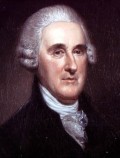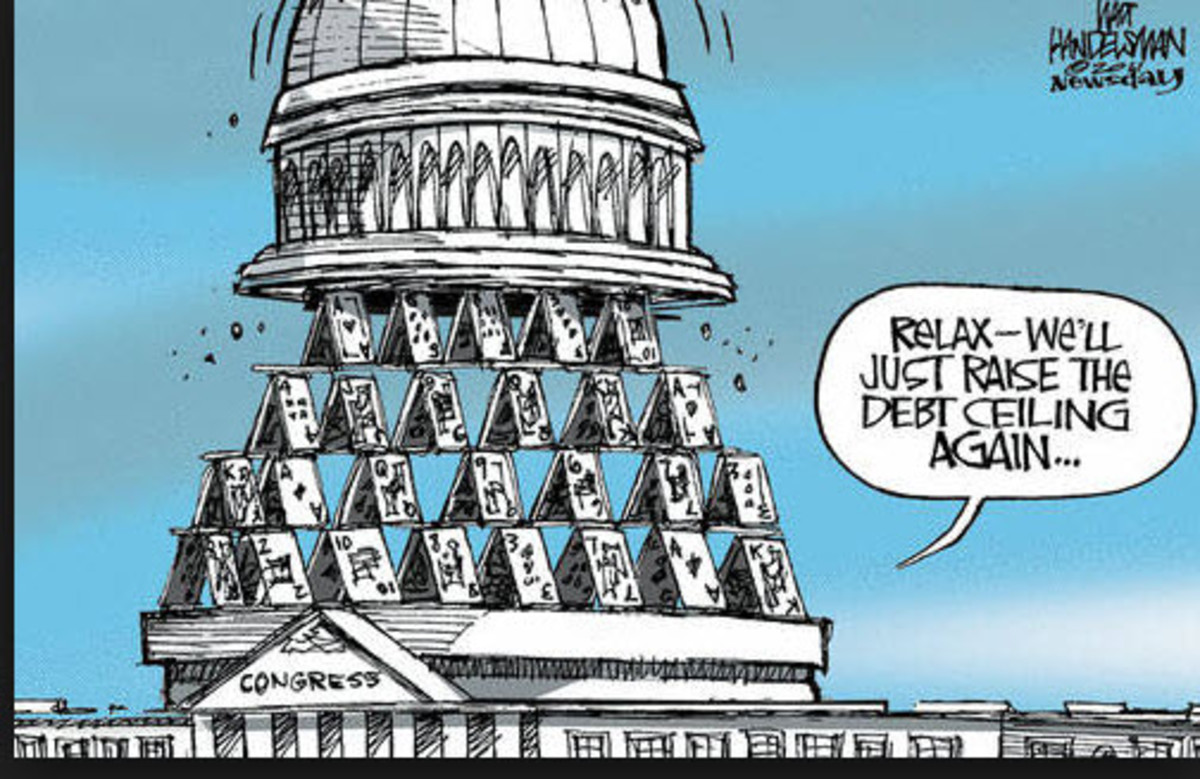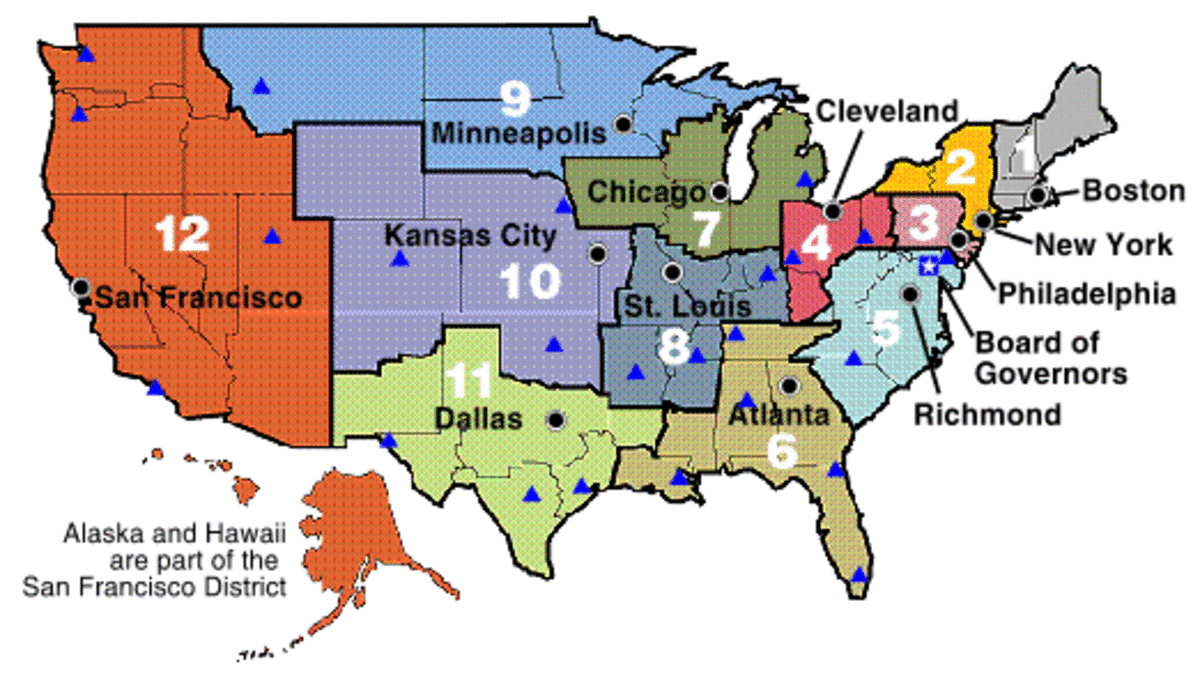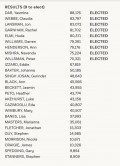Views of Ron Paul and Libertarians on Education and Other Issues
The Jeffersonian View that Government is a Necessary Evil
Peeling has provided an excellent answer to the request What is Ron Paul's view of funding education and how does he view other social programs domestically? But I will try to add some more as well.
Ron Paul takes a strict view of the U.S. Constitution and, during his Congressional career has made a point of voting against legislation that involves the Federal Government in areas not covered by the Constitution. In a nutshell he is opposed to the Federal Government funding or regulating education.
Ironically, despite the fact that, as a member of Congress, he is opposed to federal funding or regulation of education as being outside its Constitutional authority and, as a political and philosophical libertarian, is probably also opposed to public education in general, he has received a rating of 67% from the National Education Association (NEA) which lobbies vigorously for support of public education at all levels of government.
While this is certainly not a vote of confidence in Paul by the NEA, it indicates that his position on federal legislation has been the same as that of the NEA more than half of the time. The website OnTheIssues.org provides links to the positions of state and federal office holders, including those currently running for their party's nomination for President in 2008. On education issues Congressman Paul voted:
- No on a bill to prohibit federal courts from deciding on cases involving the Pledge of Allegiance - bill was a reaction to a federal court ruling striking the words "under God" from the pledge.
- No on a bill providing for $84 million in grants for Black and Hispanic Colleges.
- No on a bill allowing school prayer during the War on Terror No on a bill requiring states to test students.
- No on bill to create a federally funded non-profit organization to administer federally funded school vouchers for poor children in the District of Columbia.
- Yes on a bill to allow states to use federal education funds to provide vouchers for students to use to pay for parochial and private schools.
- Supports Republican Liberty Caucus position on calling for the abolition of the U.S. Department of Education. Congressman Paul is in agreement with the principles of the Caucus which include the position that education decision making should be left at the state, local or personal level and that parents have the right to spend their money on the school or method of schooling they deem appropriate for their children.
In the area of health care, Congressman Paul received a rating of 56% from the American Public Health Association (APHA). While he opposes Medicare and other federal subsidies and regulations on health care which are in line with conventional conservative positions, he did vote no on bills calling for limitations of the size of medical malpractice suits, no on capping damages and setting limits on medical lawsuits and no on a bill banning physician assisted suicide.
On taxation he is clearly in favor of tax and spending reductions as well as elimination of the Federal Income tax and the so called death tax on estates and inheritances. He also favors a return to a sound monetary policy by replacing the Federal Reserve System with a gold standard which would have the effect of preventing the government from secretly taxing people's incomes and wealth by inflating the currency thereby reducing the purchasing power of income and wealth. He also supports greatly reducing federal regulation of the economy.
Ron Paul's Views on War and Foreign Affairs
In the area of foreign affairs he is opposed to the U.S. assuming responsibility for being a global police force and feels we should disengage from military commitments abroad that are not directly related to the defense of the U.S. homeland. He is not a pacifist and not opposed to the use of military force for the defense of the U.S. However, he is opposed to preemptive actions such as Iraq and Afghanistan. In this he is in the same tradition as George Washington warning against foreign entanglements in his farewell address, Senator Henry Cabot Lodge Sr. in his opposition to the ill fated Treaty of Versailles and the League of Nations and President Dwight Eisenhower's farewell address warning against the growing power of the military-industrial complex.
Ron Paul voted against the Congressional resolutions authorizing military action in Afghanistan and Iraq, pointing out that that the Constitution gives power to Congress, not the President, to declare war (U.S. Constitution, Article 1, Section 8). The last time Congress actually declared war was when we declared war on Germany, Italy and Japan following the attack on Pearl Harbor. The Korean War, Vietnam War, Gulf War and the current Wars in Iraq and Afghanistan have all been undertaken without a formal declaration of war. While Paul was one of those who voted against the resolutions authorizing the actions in Iraq and Afghanistan, he did introduce a bill, immediately following the 9/11 attacks, known as the Marque and Reprisal Act of 2001 which would have granted letters of Marque and Reprisal to go after the terrorists who attacked us on 9/11.
Letters of Marque and Reprisal are authorized under the Constitution and are a part of the same sentence granting Congress the power to declare war (Article 1, Section 8 which reads: [Congress Shall Have the Power] To declare War, grant Letters of Marque and Reprisal, and make Rules concerning Captures on Land and Water;). Letters of Marque and Reprisal are warrants granted by Congress (or other sovereign nations) to private individuals authorizing them, acting as agents of the government, to seize or destroy property owned by persons or organizations who have harmed this nation or its citizens. In times past, letters of marque and reprisal were issued by governments in times of war to ship owners authorizing them to attack and capture merchant ships belonging to the enemy without being charged with piracy. According to Wikipedia the practice of issuing letters of marque and reprisal was discontinued by most nations through an annex to the 1856 Treaty of Paris that ended the Crimean War. The annex, known as the 1856 Declaration of Paris required its signatory nations to abandon the practice of issuing Letters of Marque and Reprisal. The U.S. declined to be a party to the Declaration of Paris and so is not bound by it.
While the idea of issuing Letters of Marque and Reprisal against the 9/11 terrorists and their backers may be far fetched, it does undercut the argument, which was advanced in the wake of 9/11, that we couldn't issue a declaration of war since the terrorists were not a sovereign state and declarations of war only applied to sovereign nations. If Congress had bothered to read the Constitution, they would have seen that there were alternatives. By going the resolution route, the President got his authority to proceed and Congress was able to go along to the general mood of the nation for action. However, by avoiding a formal declaration of war there was no commitment by Congress or the American people to undertake a formal war with the result that, as time has passed and opinions changed, we find our troops engaged abroad and the country divided at home just as we experienced with Vietnam and Korea (technically we are still engaged in Korea as all we have there is a half century old cease fire which both sides are observing while they discuss the possibilities of ending hostilities). While I personally have supported President Bush in the way he has responded to the 9/11 attacks (including his actions in attacking Afghanistan and Iraq), a debate and an up or down vote on a formal declaration of war against Afghanistan and Iraq might have encouraged a more focused debate and limited mission, along with a stronger will to follow through, than a mere Congressional resolution supporting action under a vague UN resolution.
Because he is a libertarian, it is difficult to pigeon hole Ron Paul as a traditional liberal or conservative. Libertarians take a Jeffersonian view that government is basically a necessary evil that has to be kept on a very short leash. This is also the small government, fiscal conservative belief which is currently preached (but not necessarily practiced by its elected officials, including the current Republican President) by today's Republican Party. However, on social issues, such as school prayer, abortion, etc., they tend to support positions more in line with current liberal beliefs championed by today's Democratic Party. Libertarians favor letting the free market rather than the government make economic decisions. People make economic decisions and vote on their preferences daily every time they buy or sell something. The market involves the people voting their preferences multiple times a day as opposed to the one vote they can cast every two years for a Congressman, four years for a President and six years for a U.S. Senator all of who run on thousand page plus platforms which few, if any, people bother to read. The fact that libertarians favor the free market over the government does not mean that they necessarily favor business, especially when business goes hat in hand to the government seeking special favors and advantages.
Ron Paul is able to get scores higher than zero from big government, liberal organizations, like the National Education Association (NEA), because he consistently takes a strict view of the Constitution and votes accordingly. Thus, on controversial issues like school prayer, abortion, etc. he frequently votes like a traditional liberal - not necessarily because this reflects his personal beliefs but because power to regulate these are not granted to the federal government by the Constitution.
While there numerous court cases and debates over the First (freedom of speech, press and religion), Second (right to bear arms) and Fifth (people can't be forced to testify against themselves in court, etc.) amendments that constitute the Bill of Rights, there is little mention, let alone debate, of the Tenth Amendment which reads The powers not delegated to the United States by the Constitution, nor prohibited by it to the States, are reserved to the States respectively, or to the people. Since the administration of Franklin Roosevelt, this amendment has been totally ignored, as the Federal Government has moved in with laws, regulations and court decisions giving it power over vast areas of American life that the Constitution made both no provision for federal government involvement nor denied involvement to the states.
We complain about the influence of special interests in politics, but it is the abandoning of the Tenth Amendment that has created the river through which much of the special interest influence flows. It is much easier for the average citizen to make changes at the local or state level than at the federal level so, by ignoring the Bill of Rights, well healed special interests are able to get legislation enacted that would be far more difficult, if not impossible, to enact at the state or local level. This includes the practice by which the federal government sucks billions of dollars in taxes from American citizens each year only to return it (less a percentage to support the bureaucracy behind this) to state and local governments for projects which elected state and local officials would never bring before the voters for fear of losing their jobs.
For more on Ron Paul click here











